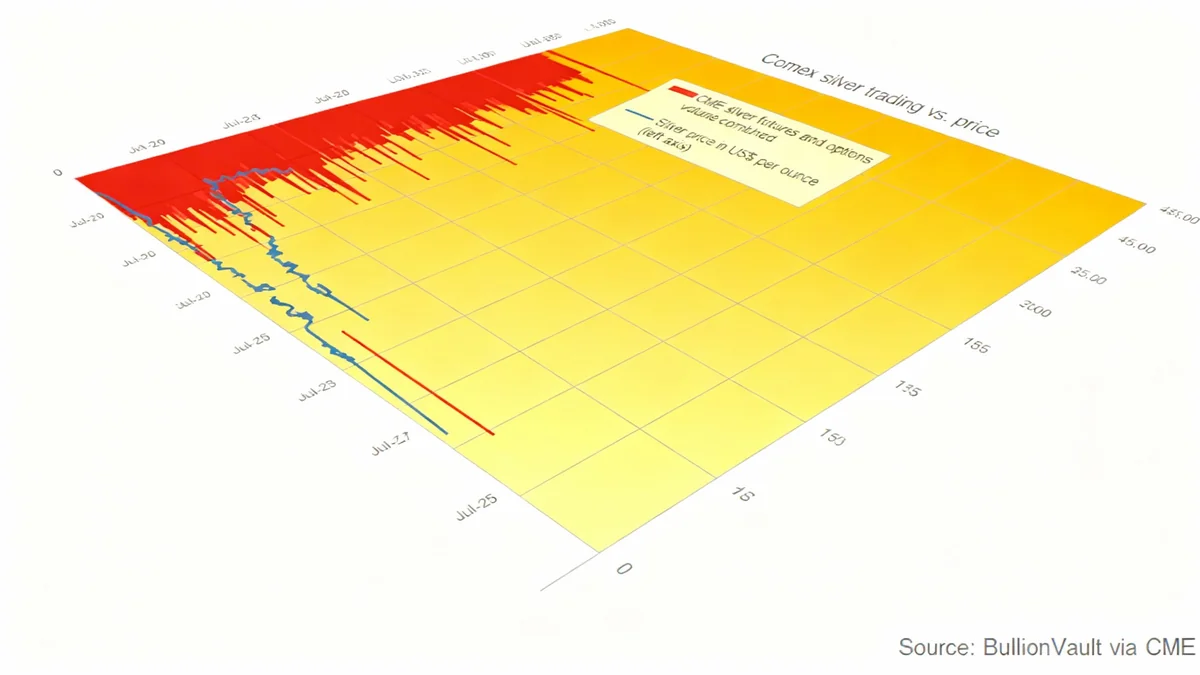Short interest in the S&P 500's information technology sector increased in September, signaling a rise in negative sentiment among some investors. The average short interest as a percentage of shares available for trading grew to 1.76% last month, up from 1.63% recorded at the end of August.
This uptick in bearish positions comes even as the technology sector has significantly outperformed the broader market this year. The Technology Select Sector SPDR Fund (XLK), which tracks the S&P 500's tech stocks, has gained over 21% year-to-date, nearly double the approximate 11% rise of the benchmark S&P 500 index.
Key Takeaways
- Average short interest in the S&P 500 technology sector rose to 1.76% in September from 1.63% in August.
- Super Micro Computer (SMCI) was the most shorted tech stock, with 18.14% of its float sold short.
- Microsoft (MSFT) and Apple (AAPL) were among the least shorted stocks, both with short interest of 0.75%.
- The IT Services industry attracted the most short-seller attention, with an average short interest of 3.22%.
A Contrasting View on Tech's Performance
The decision by short sellers to increase their positions against technology companies highlights a growing divide in market sentiment. While many investors have benefited from the sector's strong performance, others are betting that the rally may be due for a correction. Short selling involves borrowing a stock and selling it, with the hope of buying it back later at a lower price to profit from the decline.
An increase in short interest can suggest that some market participants believe certain stocks or the entire sector may be overvalued after a period of rapid price appreciation. The tech sector's 21% gain this year, fueled by enthusiasm for artificial intelligence and strong earnings from major players, has pushed valuations higher, making it a target for those anticipating a pullback.
Understanding Short Interest
Short interest measures the total number of shares of a stock that have been sold short by investors but have not yet been covered or closed out. It is often expressed as a percentage of the total shares available for trading (the float). A high short interest percentage can indicate widespread negative sentiment about a company's future prospects.
The Most Targeted Technology Stocks
Analysis of individual companies reveals specific targets for short sellers within the technology landscape. As of September, the three stocks with the highest short interest were concentrated in hardware and software services.
Super Micro Computer Leads the List
Super Micro Computer (SMCI) held the position of the most shorted stock in the sector, with a short interest of 18.14%. Interestingly, this figure represents a slight decrease from the 18.61% reported at the end of August. The high level of short interest suggests that despite its strong performance linked to the AI boom, many investors believe its rapid ascent is unsustainable.
Western Digital and AppLovin Follow
Data storage company Western Digital (WDC) was the second most shorted stock, with 10.73% of its shares sold short. The data storage industry is often cyclical, and short sellers may be betting on headwinds in that market.
Mobile technology firm AppLovin (APP) ranked third, with a short interest of 9.78%. The digital advertising and mobile app market can be highly competitive and subject to shifts in consumer spending and privacy regulations, factors that could attract bearish bets.
Top 3 Most Shorted Tech Stocks (September)
- Super Micro Computer (SMCI): 18.14%
- Western Digital (WDC): 10.73%
- AppLovin (APP): 9.78%
Mega-Caps Remain a Safe Harbor
In stark contrast to the heavily shorted names, the largest and most established technology companies saw very little short-seller activity. This indicates that investors largely remain confident in the stability and continued performance of these market leaders.
Microsoft (MSFT) was the least shorted stock in the entire sector, with a short interest of just 0.75%. This reflects strong investor confidence in its diverse business lines, including cloud computing, software, and its significant investments in artificial intelligence.
Following closely was Apple (AAPL), which also had a short interest of 0.75%. The company's massive cash reserves, loyal customer base, and consistent profitability make it a difficult target for short sellers.
The third least shorted stock was Amphenol (APH), a major producer of electronic connectors, with a short interest of only 0.77%. The company's integral role in the global electronics supply chain provides it with a stable market position.
Industry-Level Analysis Shows Deeper Trends
A breakdown of short interest by industry within the tech sector provides further insight into where investors see the most potential for declines. The data shows a clear preference for shorting service-based industries over hardware and equipment manufacturers.
IT Services Attracts Most Bearish Bets
The IT Services industry was the most shorted group within the sector, with an average short interest of 3.22% in September. This was an increase from 3.00% in August, suggesting that negative sentiment in this area is growing. Companies in this space often face intense competition and pressure on profit margins.
The Electronic Manufacturing Services industry was the second most shorted, with an average short interest of 2.63% as of September 30th.
Communications Equipment Least Shorted
On the other end of the spectrum, the Communications Equipment industry was the least shorted in the technology sector. With an average short interest of just 1.11%, investors appear to have a more positive or neutral outlook on companies that produce networking hardware and other communications infrastructure.
This low level of short interest may reflect expectations for continued investment in 5G networks, data centers, and other critical infrastructure needed to support the growth of AI and other data-intensive technologies. As the market continues to navigate economic uncertainty, these trends in short-seller activity will be a key indicator of underlying sentiment in the high-performing technology sector.





